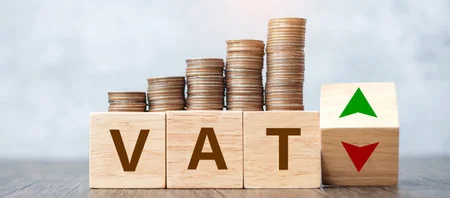Chama taxation refers to the taxation of income generated by investment groups or social savings clubs, commonly known as “chamas.” These groups may be subject to taxation depending on their legal status and the amount of income earned. It is important for chama members to understand their tax obligations. In addition to that, there is a need to seek professional advice if necessary to ensure compliance with tax laws.
Chamas is an excellent way for individuals to pool resources and invest collectively. This is essential as members can make investments that may have been out of reach for individual members.
When it comes to chama taxation, there are types of taxes that members should be aware of.
Chamas may be subject to income tax, value-added tax(VAT), withholding tax, and capital gains tax. Additionally, chamas may be required to be registered for tax purposes and file tax returns with the relevant tax authorities. Understanding the taxation procedures and terms could be a challenge for chama members. It is therefore important to consult with tax professionals to understand their tax obligations and ensure compliance with tax laws.
Types of taxes for chamas
Income Tax

This is a tax on income that chamas earn from their investments. The authorities vary the rate of income tax charged based on the type and amount of income earned. In some countries, the income tax is implemented in such a way that chamas are taxed as partnerships. This means that the chama itself is not taxed on its income. Chamas pass through the earned income to individual members who are then responsible for paying tax on their respective shares of the income.
In other countries, chamas taxes are charged as a separate entity. This means that the chama itself is taxed on its income. This is known as corporate tax. The tax rate varies depending on the country’s tax laws.
It’s also important to note that in some countries, chamas may be exempt from income tax if they meet certain criteria. For example, chamas that invest in certain social enterprises may be exempt from income tax.
Value-Added Tax (VAT)
Authorities charge value-added tax on the value added to goods and services during the production process. When chamas consider investment, they are subject to VAT on the goods and services they purchase as part of their investment strategy.

For example, if a chama purchases a piece of land, the transaction may require them to pay VAT. If a chama hires a contractor to build a property, they may have to pay VAT on the contractor’s services.
It is quite important to note that VAT laws vary by country. The rules surrounding VAT on chama investments may also differ depending on the country’s tax laws.
Complying with Tax Laws
Not being able to be compliant with tax laws could be very hazardous to a chama. Therefore, it is essential that chamas comply with the tax laws. Chamas can ensure keeping accurate records of their investments, including the income earned and expenses incurred. Chamas could leverage the opportunity of digitizing its processes. This ensures that information on chama’s annual financial statements is well-kept and easy to retrieve. A well-qualified auditor should also audit the financial information.
Chamas should also be keen to ensure that they file their returns and pay any taxes owed by the deadline.

In instances where chamas fail to comply with tax laws, it can result in penalties and fines. This can be quite a shortcoming to chams as it can significantly impact the cham’s financial performance.
Tax laws can be complex. Therefore, it is important for chama members who need clarification to seek the advice of a tax professional to ensure compliance.
Tax Benefits
Tax benefits are the advantages or incentives that are provided by tax laws to reduce the tax liability of chamas. The benefits may include tax exemptions, deductions, credits, and reduced tax rates.
If authorities impose tax relief on a chama, they apply the relief to contributions made to the chama. This means that members can deduct their contributions from their taxable income. This can help to reduce the amount of income tax owed by individual members.
The intention of tax benefits is to promote the growth and sustainability of chamas and encourage their contribution to the economy.
Chamas who take advantage of the tax benefits is able to reduce their tax burden and retain more of their income for their members or for investment purposes.
In instances where the chamas are tax compliant, it is possible to retain and attract new members easily. This is because a tax burden on a chama can be a major turnoff and a limitation for members intending to join a chama.
Understanding tax benefits available to members, and also complying with them is a major advantage to chamas. Chamas who leverage the opportunity and enjoy the tax benefits are able to jump one hurdle in terms of their financial management.
Chama taxation can in some instances be quite beneficial to members and work in their favor. For example, in the instance where a chama makes some charitable contributions. In an instance where a chama makes a charitable contribution to a qualified organization, members may be able to deduct their share of the contribution on their tax returns. This can be a great way to support a cause that the group believes in while also reducing members’ tax liability.
It is indisputable that chama taxation is a complex topic that requires thorough research and understanding so as to ensure that chamas are able to comply with applicable tax rules and regulations. It is up to the chamas to commit to ensuring that they comply with the applicable tax rules and regulations. This is because chamas are an effective way to save and invest for members. Therefore, it is necessary to ensure that the members’ tax liability is minimal.
Conclusion
Chama taxation can be complex, and it is very important for members to be aware of the tax implications of their investments. Income tax and the Value Added Tax are the two main taxes that chams need t not only be aware of but also ensure that they comply with. By digitizing their processes to ensure that they keep accurate records, file tax returns on time, and seek the advice of a tax professional when needed, Chama members can effectively ensure compliance with tax laws and maximize the benefits of their investments.
References:
- Value added tax (VAT) – kra – kenya revenue authority. Available at: https://www.kra.go.ke/individual/filing-paying/types-of-taxes/value-added-tax (Accessed: 10 May 2023). https://www.kra.go.ke/individual/filing-paying/types-of-taxes/value-added-tax
Categorised in: General
This post was written by Cynthia Njoki
Please Subscribe and get Notified when new articles are posted
